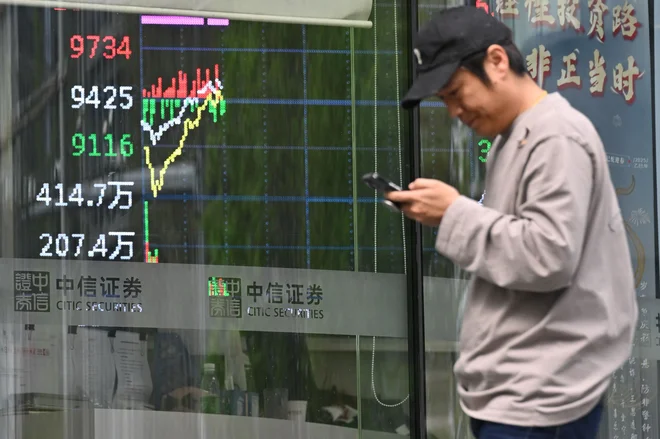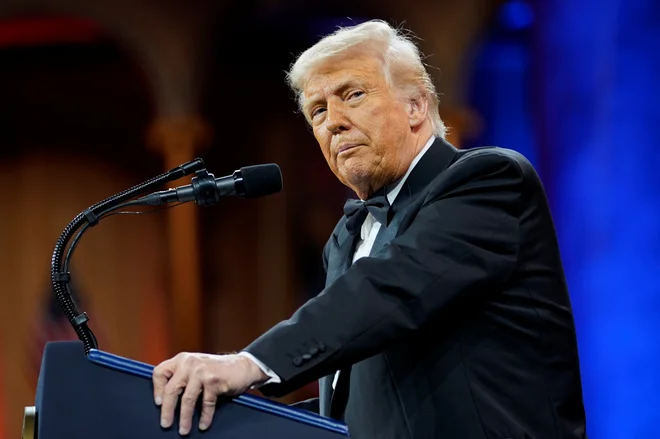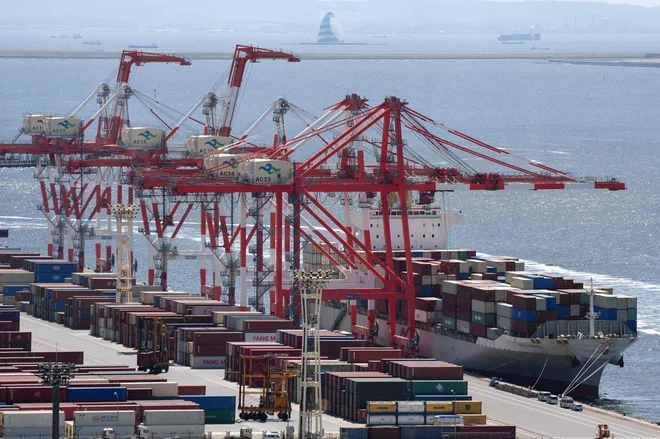What will the EU taxes? Soy and ice cream, whiskey was released due to lobbies

According to the documents he obtained PoliticsThe European Commission is considering the introduction of customs duties up to 25 percent on a wide range of products imported by the US. In 2024, the value of this in the EU is expected to amount to around € 22.1 billion. The list contains agricultural and industrial products such as soybeans, meat, tobacco, iron, steel and aluminum.
Also read:
Customs are a new shock for car suppliers who dismiss and close the factories
Trump rejected Brussels and requires $ 350 billion from the EU
Customs have caused a pandemic of Trumpovirus
EU Member States will vote on new duties on Wednesday, no major opposition is expected. After confirmation, the first wave of customs – including the cranberries and orange juice, originally introduced in 2018 but temporarily frozen in 2021 – will enter into force on April 15.
The second set of customs (25 percent) to imported products such as steel, meat, white chocolate and polyethylene will come into force on May 16, and the last package included almonds and soybeans will enter into force on December 1.
Together will be EU customs officers after analysis Politician Affected US exports worth up to $ 13.5 billion, mostly from these « red countries », which generally vote for Republicans.
The first target of the EU is soy. The US is the second largest manufacturer and exporter of soybeans in the world, and the sector is already weakened by Chinese retaliation, increasing competition and decreasing prices. As many as 82.5 percent of US soybeans in the EU comes from Louisiana, the domestic states of the president of the representative home, Mika Johnson.
The soybean manufacturers have been sharply criticizing Trump’s economic approach last month, pointing out that « customs are not a thing that would be taken easily » and called for a re -reflection of tariffs against Canada, Mexico and China.
The EU also targets the cattle from Kansas and Nebraska, poultry from Louisiana, Michigan car parts, Florida cigarettes, and North Carolina, Georgie and Alabama wood products.
Although the Commission, after successful lobbying of France, Italy and Ireland, released the whiskey from the final draft, it has retained other, more niche products to cause the most pain to exporters in Republican countries.
Among them (but not limited to): arizona ice cream, South Carolina wipes, alabama electrical blankets, ties and florida butterflies (unless silk – is happy to provide democratic California) and Wisconsin washing machines.
Florida and southern caroline pasta will also be subject to customs, which Italy is as a replacement supplier, very happy.
As many as 125 percentage customs duties will apply to China
She is also diverse in relationship with China. White House Representative Caroline Leavitt yesterday announced that elevated customs duties from China, which is now 104 %, will enter into force today. New customs duties that US president invented on his own fist Donald Trump Last night, they are added to the existing ones. China, who expected a increase in customs duties by 34 percent within Trump’s « reciprocal » customs package, now has to count on another 50 percent of taxation in imports of his goods in the United States.
The Chinese Ministry of Trade has already expressed a decisive opposition to an additional 50 % customs duties and labeled them a « mistake ». They stressed that they would escalate retaliation on US exports. China has already announced the introduction of 34 % retaliatory customs duties on US goods.
China was the second largest source of imports for the United States last year, with a total value of $ 439 billion, while the US exported $ 144 billion to China.
Trump introduced an average customs rate of 19.3 percent to Chinese goods in the first term. The Bidn’s administration maintained most of Trump’s customs duties and added new ones, raising the average rate to 20.8 percent. With Wednesday, the average customs duty on Chinese exports in the United States will be almost 125 percent, writes CNN.
China suffered one of the worst blows due to the increase in customs. The Yuan value fell to the lowest level in 19 months.
Japan has launched debate on course policies with the US. In Australia, major falls have been recorded in stock markets, with the most concerned being the Australian mining sector, which depends on global demand.
After yesterday’s short -term growth, Asian stock exchanges are back in red. Photo: Adek Berry AFP
South Korea has introduced emergency measures to support auto industry, including financial support and tax relief. Vietnam is trying to delay the introduction of customs duties and promises an increase in US products.
Trump’s tariffs also influenced the global stock markets and central banks. After yesterday’s growth, the stock markets in Shanghai, Taiwan and Hong Kong are now in a fall, a central bank such as New Zealand, have reduced interest rates. Investors are afraid that the global recession is at the door.
Will they fully prohibit the import of American films?
Chinese media and social network users responded to Trump’s threat to additional customs duties. Two Beijing -related influential commentators shared a list of possible countermeasures; A significant increase in customs duties on US agricultural products, prohibition of importing US poultry, limiting market access for services such as legal counseling, and further restraint or complete prohibition of importing US films.
Increased customs duties are likely to cause higher prices for consumers as companies will transfer costs to end users. This is especially true for products such as toys, communication equipment, smartphones, computers and other consumer electronics, which are largely imported by the US from China. In addition, China’s retaliation will probably be affected by US agricultural manufacturers and other exporters, which can lead to dismissal and reduction in revenue in the affected sectors.
In recent days, numerous executive directors of the largest multinationals have expressed concern about the adverse effects of US customs duties on the global economy and the reputation of US business.
Trump: States call me and kiss my ass
Trump’s decision on new customs duties has also caused concern in the global financial markets. The US stock indices recorded growth on Tuesday morning, but after the tightening announcement of the White House began to fall. Dow Jones fell by 320 points (0.84 percent), S&P 500 by 1.57 percent, while Nasdaq Composite lost 2.15 percent. Asian markets also followed the falls of Wall Street, with the Japanese index of Nikkeii 225 with three percent lower value, and Hong Kong Hang Seng fell by three percent.

Trump addressed Congress last night in his style. Photo: Nathan Howard Reuters
While Trump’s administration insists on his plans, the White House remains open to individual negotiations with other countries. The spokeswoman for Karolina Leavitt emphasized that Trump does not have much appetite to delay his plans, but is ready to « custom » agreements with those countries who want to negotiate. This could mean that some countries may be able to achieve lower customs rates if prepared for concessions. But, as the US media writes, the exact rules of how until the dismissal of customs payment is still not clear.
“These countries call us. They kiss my ass. They are dying to make an agreement, « Trump told the Republicans to the Republicans on Tuesday night, just hours before the tariff began. He described foreign leaders as those who literally humiliated themselves to avoid new duties: “Please, please, we conclude a deal. I will do anything, sir, « the US president said in his style.
Is Trump’s approach legal?
Trump’s decisions to increase customs duties on Chinese products raise questions about the legality of his approach. The US Constitution stipulates that the congress has powers to regulate trade and taxation, but Trump refers to existing laws, such as the 1977 International Economic Extraordinary Authorization Act and the 1974 Trade Act.
Republicans are not united in Congress. Seven Republican Senators, including Mitch McConnell and Charles Grassley, supported a double -sided law that would limit the president’s duty powers. The bill would require the White House to justify the customs duties, and then allow the legislators to reject them within 60 days. The likelihood that the law will enter into force is not likely due to May support, because the white house can invest a veto.

Customs wars have a profound impact on the economy, analysts predict the global recession. Photo: Kazuhiro Feet/AFP
Trump customs also raise legal issues. The Libertarian Legal Group New Civil Liberties Alliance (NCLA) argues that the 1977 law does not allow the introduction of the tariff.
Historically speaking is a congress as it says Cnngradually passed the authority regarding customs duties, especially after World War II and during great depression. The Smoot-Hawley Law, which deepened the great depression, was a key moment when the congress passed on the authorization to the executive branch of power. Trump used these laws to enforce complete control of the trade war, which caused political and legal disputes and calls for the return of these powers to the congress.







